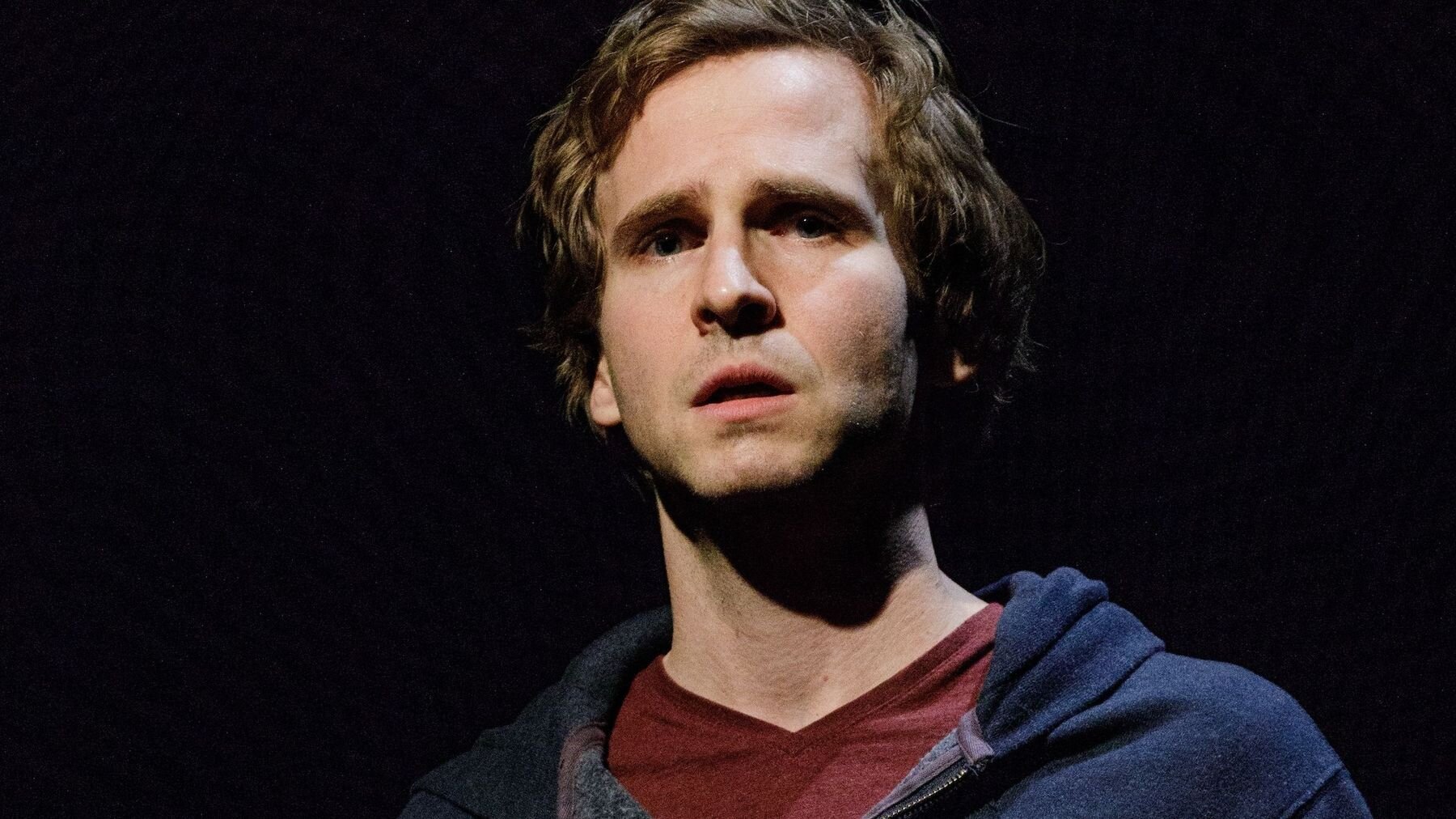Art imitates homelife for the actor off-Broadway in Daniel's Husband.
By Brandon Voss
Should gay people get married just because they can — or should they fight instead for the right to be different? That’s the big question popped in Daniel’s Husband.
Written by Michael McKeever and directed by Joe Brancato, the new Primary Stages production marks the play’s New York premiere. Ryan Spahn stars as Daniel, who, despite his best efforts and the play’s title, has not married his handsome boyfriend, Mitchell (Matthew Montelongo).
Last seen off-Broadway in Gloria and Exit Strategy, Spahn co-wrote and starred in the film He’s Way More Famous Than You. He’s also a consulting producer on Logo’s Cocktails and Classics. But for better or worse, some may know him as the longtime partner of Ugly Betty alum and C&C host Michael Urie.
Spahn explains why both he and Daniel have avoided the altar.
NewNowNext: Why is marriage so important to Daniel?
Ryan Spahn: He’s probably somebody who’s always dreamed of getting married. Suddenly, he’s legally able to, and he’s with someone he loves. On top of that, if you’re with somebody who’s holding back on getting married, there’s a fear that they’re holding back on you.
Why is Mitchell, Daniel’s partner, so stubbornly opposed to marriage?
His point of view is that gay people have always been told to adjust and assimilate — to alter who we are in order to be accepted. Now that marriage is an option, he feels he has to change again to be a part of the heteronorm.
Daniel and Mitchell both make solid arguments for and against marriage, but the play ultimately picks a side, doesn’t it?
I don’t really see the play as a marriage play. It’s deeper than that. It resonates more for me as play about never going to bed or leaving a room on an argument, because you never know what’s going to happen. You can’t leave something broken between you and someone you love.
As a cautionary tale, though, the play makes a strong case for marriage being the more sensible option.
Well, there are legal issues that should be considered. It’s okay if you don’t want to have a ceremony in front of 200 people, but if you share a life with somebody and don’t acknowledge certain legalities, you could run into major problems.
Daniel and Mitchell have been together for seven years. How long have you and Michael Urie been together?
Close to nine years now.
Do you have similar discussions about marriage at home?
Yeah, we definitely do. There are lots of things in the play that Michael and I have argued about. But I’d say that Michael is more like Daniel and I’m more like Mitchell.
Michael wants to get married more than you do?
Yeah, but we both vacillate. Honestly, a big issue for us is that marriage introduces so much conversation and opinion from outside sources into your relationship. The stress of that outweighs any desire to do it.
Mitchell points to his grandparents’ bad marriage as proof that it’s an archaic institution. Has your family influenced your feelings on marriage?
I come from a broken home, and my exposure to marriage was pretty unusual: My stepparents actually used to be married to each other, so they swapped spouses. I’m also not an overly sentimental person — I’m not that into birthdays or holidays — so the thought of a wedding doesn’t excite me. But the older I get, the legal benefits do seem more appealing. Michael and I have talked about maybe doing it at a courthouse with our two best friends.
Has the play made you look at marriage any differently?
I’ve noticed that I think and feel differently when I’m on stage, more than I did in rehearsal. Sharing this play with the audience, I can feel people gravitating toward my character’s experience, and I felt the need to stand up for them. So my character’s point of view became more important to me.
In the current political climate, when our rights may be at risk, same-sex marriage seems like a political statement more than ever. Do you feel the weight of that?
For sure. But that’s also why I’ve steered away from marriage, because I have a higher profile partner. In this interview, for example, you immediately had knowledge of my relationship with Michael. I have to tread lightly, because I don’t always want my relationship with Michael to be a part of my work.
You’re in a play about a committed gay relationship, so I had to draw parallels to your own.
No, no, of course, and I didn’t mean that as anything against you. I’m just saying that I’m very aware that, in any situation I go into, people already have weird knowledge of my relationship. If we were to get married, it would introduce even more discussions and congratulations from people I don’t even know. That would probably make me a little anxious.
Have you drawn on other aspects of your relationship to enrich your character’s relationship with Mitchell?
Oh, yeah. So much so, in fact, that early on I made it very clear that if I change a line and call Mitchell “babe,” it’s because I’m afraid I’ll start calling him Michael. [Laughs]. So the audience buys us as a couple, my costar Matthew and I have subtly layered in little things you do when you’ve been in a long relationship.
Daniel is quite a homemaker. Are you more of the cook and interior decorator in your relationship?
Definitely. The opening scene of the play, where they’re hosting a dinner party, is exactly how it goes down in our house. I make the food, Michael serves it. He puts on the wrong music, I judge him for it. He goes on a rant, I just shut down and go to the kitchen.
NewNowNext, April 2017.
Photo: Daniel's Husband/James Leynse

